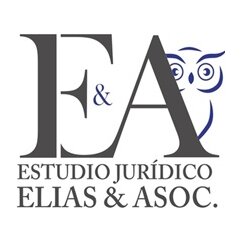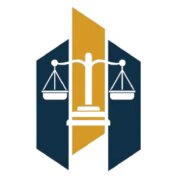Best Estate Planning Lawyers in Argentina
Share your needs with us, get contacted by law firms.
Free. Takes 2 min.
Or refine your search by selecting a city:
List of the best lawyers in Argentina
About Estate Planning Law in Argentina
Estate planning in Argentina is a process through which individuals organize the management and disposal of their estate during their lifetime and after death. This involves creating legal documents like wills, trusts, and powers of attorney that specify how their estate should be managed and distributed. Argentine law provides a legal framework that includes principles of succession (inheritance laws) as well as mechanisms to ensure the wishes of a deceased are respected. The Civil and Commercial Code of Argentina is the primary legislation governing these matters, with an aim to balance the testator's freedom to dispose of their assets with the legitimate rights of their heirs.
Why You May Need a Lawyer
There are several situations where it is beneficial or necessary to seek legal help with estate planning in Argentina:
- If you wish to ensure that your assets are distributed according to your wishes, particularly if you have complex assets or family situations.
- For assistance with drafting legally compliant wills or trusts to avoid any challenges or disputes after your passing.
- If you have minor children, a lawyer can help with appointing legal guardians and establishing trusts or funds for their care.
- When you own property or assets abroad, and you need to understand how different laws may affect your estate plan.
- If you wish to explore tax-efficient strategies to minimize liabilities on your estate.
- In situations where you need to resolve disputes over inheritances, a lawyer can offer mediation or litigation support.
- If you want to protect your assets from creditors or potential lawsuits.
Local Laws Overview
The Civil and Commercial Code of Argentina outlines inheritance laws and estate planning regulations. Key aspects include:
- Forced Heirship: Argentine law recognizes the compulsory share (legítima), which reserves a portion of the estate for the deceased's closest relatives (spouse, children, and sometimes parents), limiting the freedom to distribute one's estate entirely according to personal wishes.
- Wills: To be valid, wills must comply with several formal requirements. These include written formats (holographic or typed) and registration with public notaries.
- Intestate Succession: Without a will, the estate is distributed according to a statutory scheme that prioritizes spouses, children, and other descendants.
- Trusts: While not as common as in some countries, trusts can be used for certain purposes, but legal advice is crucial due to complex regulations.
Frequently Asked Questions
What is the purpose of estate planning in Argentina?
Estate planning in Argentina aims to manage an individual's asset distribution during their life and after death according to their wishes, while respecting forced heirship laws.
Can I disinherit a child in Argentina?
Disinheriting a child is generally challenging due to forced heirship laws that guarantee a minimum inheritance portion to certain relatives, including children. Exceptions exist, such as serious misconduct towards the testator, but these need legal examination.
How can a trust be beneficial in Argentina?
Trusts can help manage assets for beneficiaries, offer privacy, and provide frameworks for controlled asset distribution. However, they are subject to strict legal regulations and should be crafted with expert legal advice.
What happens if I die without a will?
If you die without a will, your estate will be distributed according to intestate succession laws, which prioritize spouses and children primarily, following a set hierarchy.
Are digital assets included in estate planning?
Yes, digital assets should be included in estate planning. It's important to provide access information to trusted individuals to manage or close digital accounts as per your wishes.
Do foreign assets affect my estate plan?
Foreign assets can complicate your estate plan due to differences in legal systems, and consulting with a lawyer knowledgeable about international estate planning is advisable.
How are taxes handled in estate planning?
Argentina imposes an inheritance tax (Impuesto a la Herencia) in some provinces. Estate planning strategies can help minimize tax burdens legally, often requiring expert advice.
Can I revise my estate plan later?
Yes, you can revise your estate plan. Changes in personal circumstances, financial status, or law updates make regular reviews with an estate planning lawyer important.
What qualifications should I look for in an estate planning lawyer?
Seek lawyers specializing in wills, trusts, estate and inheritance law, with a track record of successful estate planning cases, and familiarity with both local and international laws if applicable.
How do I choose executors for my will?
Choose trustworthy individuals who are likely to outlive you, capable of managing estate complexities, and willing to serve your interests after your passing.
Additional Resources
- Inspectorial Council of Notaries of Argentina (Colegio de Escribanos): Offers resources on will formalization.
- Ministry of Justice and Human Rights: Provides information on inheritance laws and legal aid services.
- Argentine Chamber of Commerce: May offer guidance on business assets in estate planning.
- Legal libraries and online databases with up-to-date legislation and case studies.
Next Steps
If you need legal assistance in estate planning:
- Assess your estate, including assets, liabilities, and any international components.
- Draft an outline of your wishes for asset distribution and care of dependents.
- Search for qualified estate planning lawyers, considering recommendations and online reviews.
- Schedule consultations to discuss your needs, clarify fees, and ensure their expertise aligns with your estate's complexity.
- After selecting a lawyer, begin collaboration on drafting legal documents and establishing a comprehensive estate plan.
Lawzana helps you find the best lawyers and law firms in Argentina through a curated and pre-screened list of qualified legal professionals. Our platform offers rankings and detailed profiles of attorneys and law firms, allowing you to compare based on practice areas, including Estate Planning, experience, and client feedback.
Each profile includes a description of the firm's areas of practice, client reviews, team members and partners, year of establishment, spoken languages, office locations, contact information, social media presence, and any published articles or resources. Most firms on our platform speak English and are experienced in both local and international legal matters.
Get a quote from top-rated law firms in Argentina — quickly, securely, and without unnecessary hassle.
Disclaimer:
The information provided on this page is for general informational purposes only and does not constitute legal advice. While we strive to ensure the accuracy and relevance of the content, legal information may change over time, and interpretations of the law can vary. You should always consult with a qualified legal professional for advice specific to your situation.
We disclaim all liability for actions taken or not taken based on the content of this page. If you believe any information is incorrect or outdated, please contact us, and we will review and update it where appropriate.
Browse estate planning law firms by city in Argentina
Refine your search by selecting a city.














